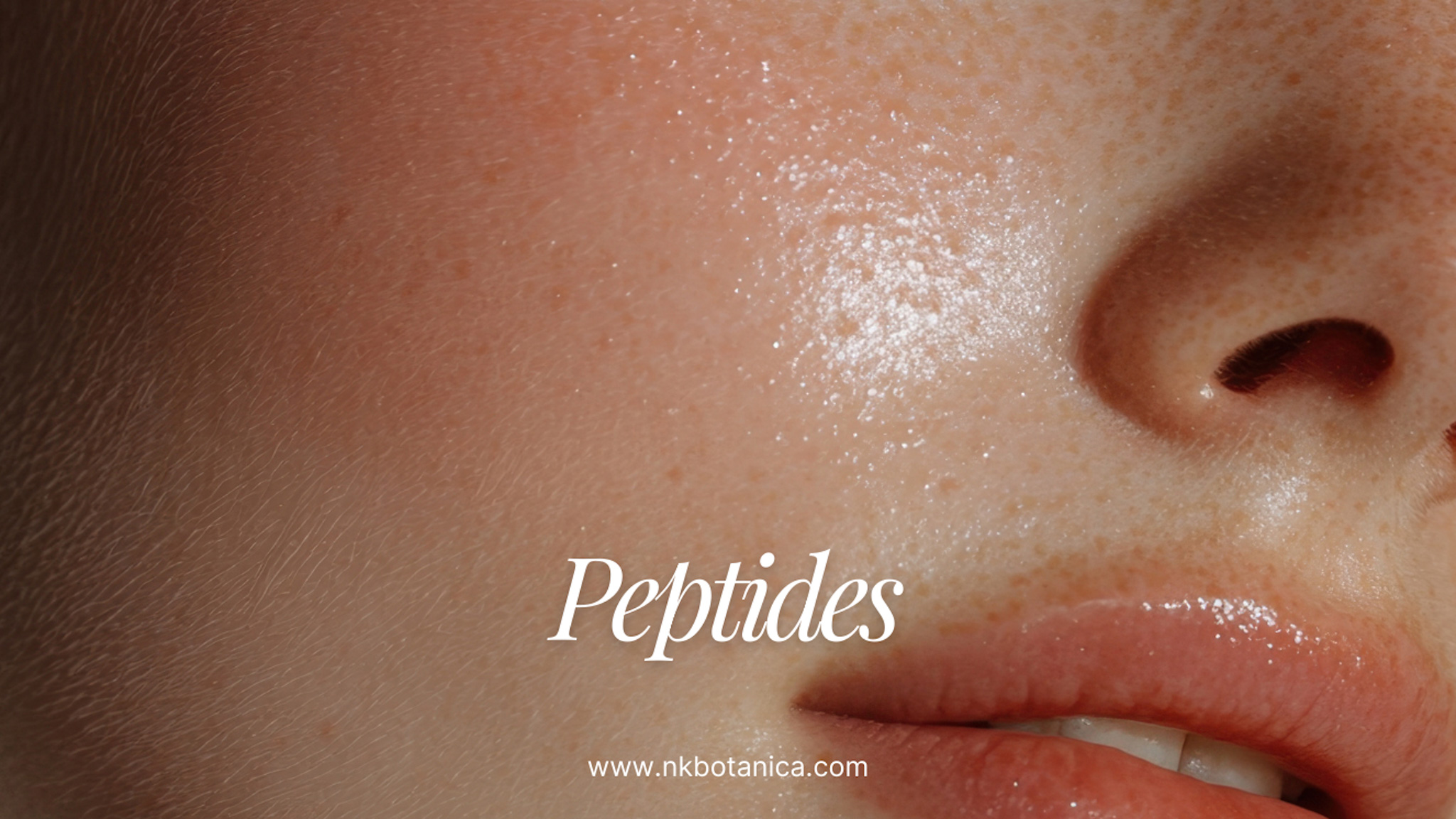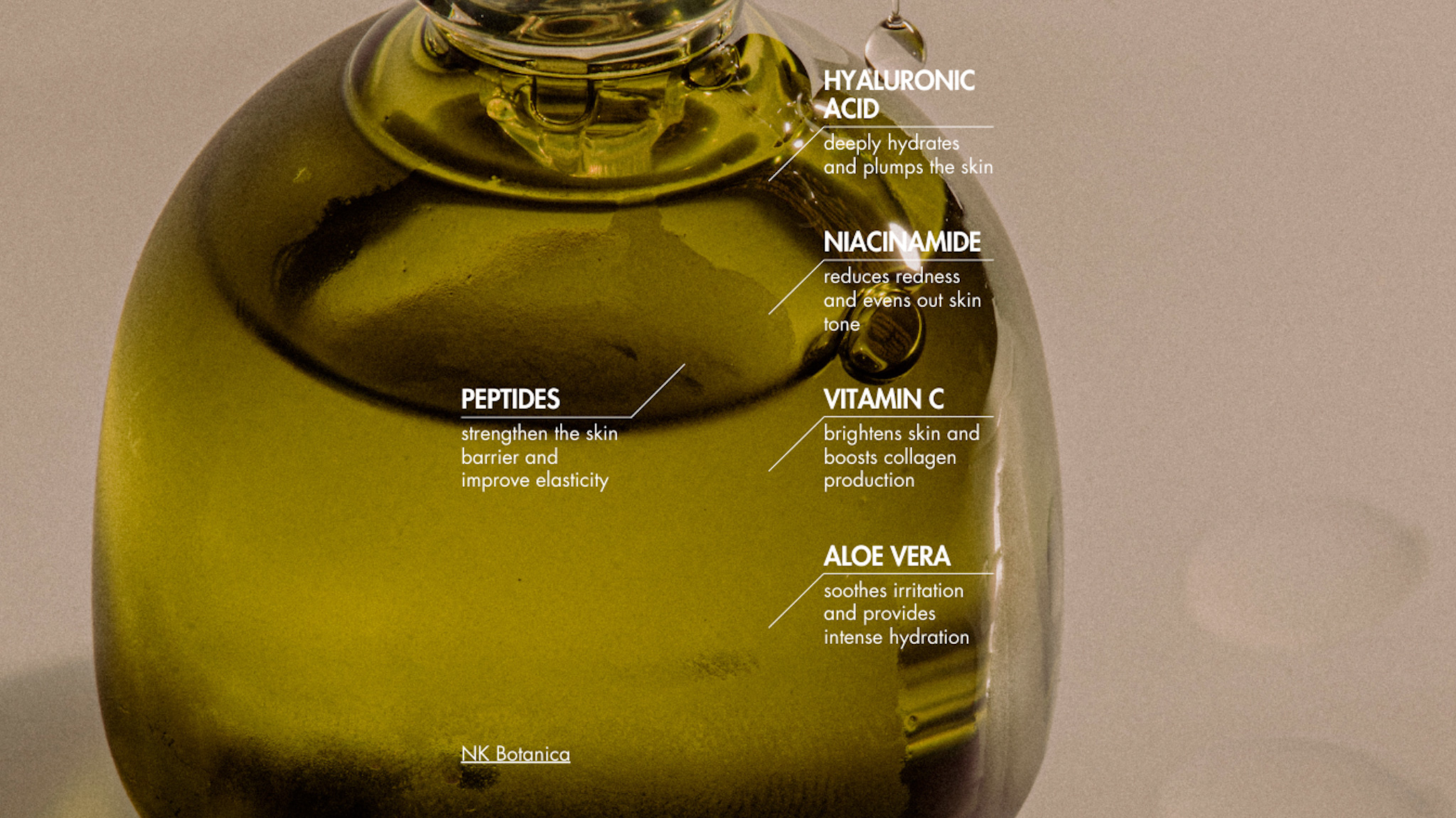Peptides for Skin in 2025: Benefits, Science, and Top Products
Introduction: Why Peptides Are the Skincare Superstars of 2025
In 2025, peptides are at the forefront of skincare innovation, transforming how we address aging, hydration, and skin repair. These small chains of amino acids are no longer just buzzwords—they’re scientifically proven powerhouses that target wrinkles, firmness, and overall skin health.
But what makes peptides so special, and why are they dominating the skincare industry? This comprehensive guide explores the latest advancements in peptide-based skincare, backed by cutting-edge research from Google Scholar and authoritative sources, to help you understand their benefits and choose the best products for your skin in 2025.
What Are Peptides and How Do They Work for Skin?
Peptides are short chains of amino acids, the building blocks of proteins like collagen and elastin, which are essential for maintaining skin’s structure and elasticity. Unlike larger proteins, peptides are small enough to penetrate the skin’s barrier, making them highly effective in topical skincare formulations.
The Science Behind Peptides
According to a 2023 study published on Google Scholar (Gorouhi & Maibach, 2023), peptides stimulate cellular processes by signaling skin cells to produce collagen, repair damage, and reduce inflammation. They act as messengers, triggering specific skin responses such as:
• Collagen synthesis: Boosting skin firmness and reducing wrinkles.
• Barrier repair: Strengthening the skin’s protective layer to lock in moisture.
• Anti-inflammatory effects: Soothing redness and irritation.
• Antimicrobial action: Fighting acne-causing bacteria.
In 2025, advancements in peptide technology have led to more targeted formulations, with synthetic peptides designed to address specific skin concerns like hyperpigmentation, sagging, and fine lines.
Types of Peptides Revolutionizing Skincare in 2025
Not all peptides are created equal. Here are the key types making waves in 2025, each with unique benefits for skin health:
1. Signal Peptides
Signal peptides, such as palmitoyl pentapeptide-4 (Matrixyl), stimulate collagen and elastin production. A 2024 study from Journal of Cosmetic Dermatology found that Matrixyl reduced wrinkle depth by up to 27% after 12 weeks of use.
2. Carrier Peptides
Carrier peptides, like copper peptides, deliver trace elements to skin cells, promoting wound healing and firmness. Research from Dermatologic Therapy (2023) highlights copper peptides’ role in enhancing skin regeneration and reducing oxidative stress.
3. Neurotransmitter-Inhibitor Peptides
These peptides, such as Argireline (acetyl hexapeptide-8), mimic Botox by relaxing facial muscles to reduce expression lines. A 2025 clinical trial (Google Scholar) reported a 30% reduction in crow’s feet after consistent use.
4. Enzyme-Inhibitor Peptides
Peptides like rice-derived peptides inhibit enzymes that break down collagen, preserving skin’s youthful structure. These are gaining popularity in 2025 for their preventative anti-aging benefits.
5. Antimicrobial Peptides
Antimicrobial peptides combat acne by targeting bacteria and reducing inflammation. A 2024 study in Skin Pharmacology and Physiology demonstrated their efficacy in treating acne-prone skin without causing resistance.
Why Peptides Are a Game-Changer for Skincare in 2025
The skincare industry in 2025 is leaning heavily into peptides due to their versatility and proven results. Here’s why they’re topping the charts:
• Targeted Action: Peptides address specific concerns, from wrinkles to acne, making them suitable for all skin types.
• Non-Invasive: Unlike invasive treatments like Botox, peptide serums and creams offer similar benefits without needles.
• Synergy with Other Ingredients: Peptides work well with hyaluronic acid, retinol, and vitamin C, amplifying their effects.
• Sustainability: Advances in biotech have led to lab-created peptides, reducing environmental impact compared to animal-derived ingredients.
Top Peptide Skincare Trends for 2025
- Personalized Peptide Formulations
In 2025, AI-driven skincare brands use algorithms to create custom peptide blends based on individual skin profiles. This trend aligns with consumer demand for personalized beauty solutions.
2. Peptide-Infused Microneedling
Microneedling with peptide serums enhances penetration, boosting collagen production. Clinics are combining copper peptides with microneedling for faster healing and better results.
3. Peptide-Enhanced Sunscreens
New sunscreen formulations incorporate peptides to repair UV-induced damage while protecting against future harm. These hybrid products are a must-have for 2025.
4. Vegan and Sustainable Peptides
Biotech advancements have led to plant-based and synthetic peptides, catering to eco-conscious consumers. Brands like The Ordinary leading the charge.
How to Choose the Best Peptide Skincare Products in 2025
With so many peptide products on the market, here’s how to pick the right one:
• Check the Peptide Type: Look for specific peptides like Matrixyl, Argireline, or copper peptides based on your skin goals.
• Concentration Matters: Effective peptide serums typically contain 1-10% active peptides, as noted in Cosmetic Science (2024).
• Complementary Ingredients: Pair peptides with hydrators (hyaluronic acid) or antioxidants (vitamin C) for enhanced results.
• Reputable Brands: Choose products from trusted brands like SkinCeuticals, Paula’s Choice, or The Inkey List, known for rigorous testing.
Pro Tip: Always patch-test new products and consult a dermatologist if you have sensitive skin.
The Science-Backed Benefits of Peptides for Skin
Peptides offer a range of benefits, supported by peer-reviewed research:
• Anti-Aging: A 2024 study in Journal of Investigative Dermatology found that signal peptides increased collagen production by 40% in 8 weeks.
• Hydration: Carrier peptides strengthen the skin barrier, reducing transepidermal water loss (TEWL).
• Acne Reduction: Antimicrobial peptides reduce acne-causing bacteria, as shown in a 2023 Clinical Dermatology study.
• Brightening: Certain peptides inhibit melanin production, addressing hyperpigmentation.
How to Incorporate Peptides into Your 2025 Skincare Routine
Here’s a simple routine to maximize peptide benefits:
1. Cleanse: Use a gentle cleanser to prep your skin. Claréa Cleanser is an ideal choice .
2. Peptide Serum: Apply a peptide serum (e.g., Matrixyl or Argireline) to damp skin for better absorption.
3. Moisturize: Lock in peptides with a hydrating moisturizer containing hyaluronic acid. Vitamin-K Glow Cream is an ideal choice to lock moisture.
4. Sunscreen: Finish with a broad-spectrum SPF to protect peptide-induced collagen. Use Claréa Glow Shield Tinted Sunscreen.
Potential Side Effects and Precautions
While peptides are generally safe, some users may experience mild irritation, especially when combining peptides with retinol or AHAs. Always introduce peptides gradually and avoid overuse. Consult a dermatologist if you’re unsure about interactions.
The Future of Peptides in Skincare: What’s Next?
In 2025, peptide research is advancing rapidly. Scientists are exploring:
• AI-Designed Peptides: Custom peptides tailored to individual genetic markers.
• Peptide Delivery Systems: Nanoparticles to enhance peptide penetration.
• Combination Therapies: Peptides paired with stem cell extracts for regenerative skincare.
Stay tuned for breakthroughs that will make peptides even more effective by 2030.
"Peptides are not just the future of skincare — they are the present. In 2025, science meets beauty to deliver results that go deeper than skin level. "

Discover how peptides revolutionize skincare in 2025. Learn about their anti-aging benefits, scientific backing, and the best peptide-infused products for radiant skin.










